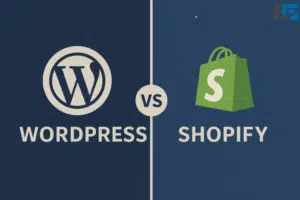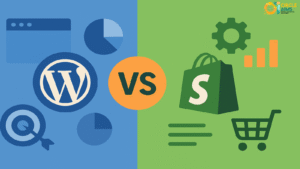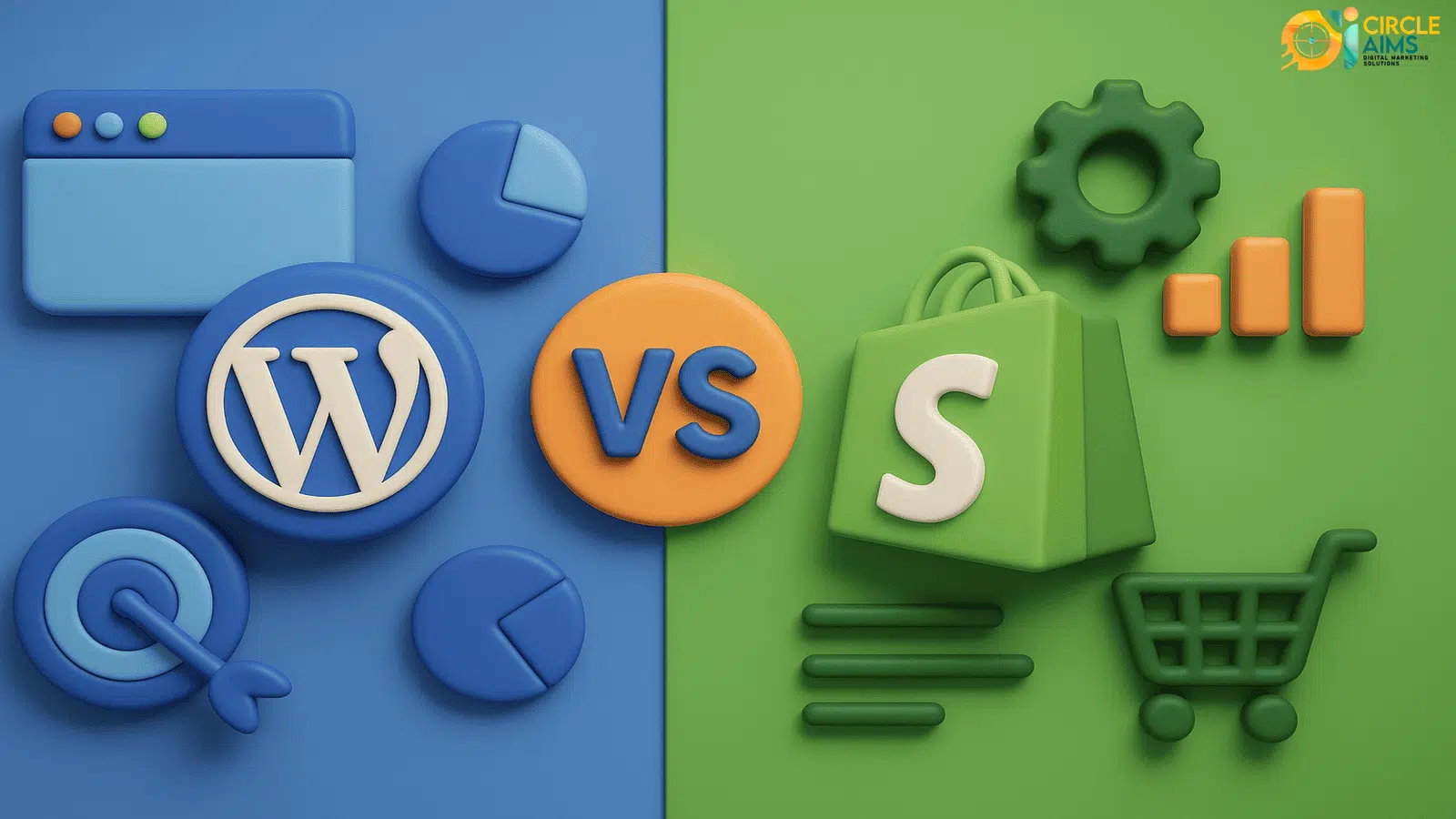A comprehensive comparison between WordPress and Shopify
Which is Better for Your Online Store?
Introduction to WordPress and Shopify
Both WordPress and Shopify are among the most important platforms used to build online stores, each offering unique features that attract a large number of users. WordPress is an open-source content management system that allows users to create various types of websites, including blogs and e-commerce stores. It is known for its high flexibility and customization options through a wide range of available themes and plugins.
Shopify, on the other hand, is a specialized e-commerce platform designed to help individuals and businesses create and manage their online stores easily. It offers a comprehensive set of tools and features that simplify the selling process, from inventory management to payment processing. Shopify also facilitates integration with shipping providers, making it a popular choice for entrepreneurs who want to launch their online businesses quickly and easily.
In terms of market presence, WordPress powers around 40% of all websites on the internet, reflecting its huge popularity and reliability. Shopify, meanwhile, continues to grow rapidly, serving more than a million users worldwide. This indicates the market impact of both: WordPress appeals to more experienced users looking for flexibility, while Shopify offers a user-friendly experience for beginners entering the e-commerce world.
Comprehensive Comparison Between WordPress and Shopify
Flexibility and Customization
Flexibility and customization are critical factors when choosing the right system for building an online store. WordPress, being open-source, provides extensive freedom to customize both design and functionality. Users can apply various themes and make direct code modifications, creating unique user experiences that reflect their brand identity.
Shopify, on the other hand, focuses on simplicity and usability. It offers an easy-to-use interface and a selection of ready-made themes with limited customization. This makes Shopify especially appealing to users without technical expertise, who value quick setup over deep customization.
Functionality-wise, WordPress allows users to extend their store through thousands of plugins, adding features such as payment gateways, inventory management, and SEO tools. Shopify also supports apps and integrations, but customization is more limited compared to WordPress.
Cost and Budget
Cost is a major factor in creating an online store. With WordPress, expenses include hosting (shared or dedicated), premium themes, and paid plugins. While these costs can add up, they remain flexible and controllable, making WordPress suitable for projects with tight budgets.
Shopify uses a subscription model with fixed monthly fees, which vary depending on the plan and included features. It covers hosting and payment systems but may add transaction fees when using third-party gateways. Over time, this can raise costs, so businesses need to calculate carefully.
In short: WordPress offers more control over budgeting, while Shopify offers a predictable, all-in-one pricing structure.

Ease of Use and User Interface
WordPress offers great flexibility but comes with a steeper learning curve, especially for non-technical users. Installing and configuring multiple plugins can be time-consuming. However, its massive community and tutorials make overcoming these challenges possible.
Shopify shines in ease of use. It provides a guided setup process, pre-built templates, and integrated payment options. Even complete beginners can launch their store within hours.
Verdict: WordPress is better for those seeking full control, while Shopify is ideal for beginners who value simplicity.
E-commerce Features
Shopify is built specifically for e-commerce, offering integrated payment systems, automated shipping options, and inventory management out of the box. This makes it a ready-to-go solution for online businesses.
WordPress requires the WooCommerce plugin (or similar) to match Shopify’s capabilities. WooCommerce provides flexibility but requires more configuration and technical knowledge.
Shipping integrations are seamless in Shopify, while WordPress relies on third-party plugins for similar functionality.
Search Engine Optimization (SEO)
WordPress excels in SEO flexibility, allowing deep customization of content and site structure. With plugins like Yoast SEO or All in One SEO Pack, users can optimize everything from titles and meta descriptions to internal link structures.
Shopify includes built-in SEO tools, making it beginner-friendly. Users can edit page titles, meta descriptions, and automatically generate sitemaps and robots.txt files. While not as customizable as WordPress, Shopify ensures fast-loading, mobile-friendly pages, which also boost rankings.
Support and Community
Shopify provides 24/7 customer support via chat, email, and phone, along with a large knowledge base and active merchant community.
WordPress relies on its massive open-source community. Support comes from forums, blogs, YouTube tutorials, and third-party developers. While official customer service is lacking, the sheer size of the community ensures abundant resources.

Security and Reliability
Security is critical in e-commerce. Shopify offers built-in SSL encryption, fraud detection, and PCI compliance, ensuring a secure environment without requiring user intervention.
WordPress security depends on the user’s choices—plugins like Wordfence or iThemes Security are necessary to protect against threats. Regular updates to themes, plugins, and core files are also essential. While powerful, this responsibility may overwhelm less technical users.
Conclusion and Takeaways
Both WordPress and Shopify offer excellent solutions for building online stores, but the right choice depends on your business needs:
- Choose WordPress (with WooCommerce) if you need full customization, advanced SEO, and want total control over your site—even if it requires more technical knowledge and ongoing maintenance.
- Choose Shopify if you want a simple, reliable, and quick-to-launch e-commerce solution with integrated features and strong support, even if customization is more limited.
Ultimately, your decision should reflect your budget, technical skills, and long-term business goals. Testing both platforms or consulting with e-commerce experts can help you make the most informed choice.








No comment